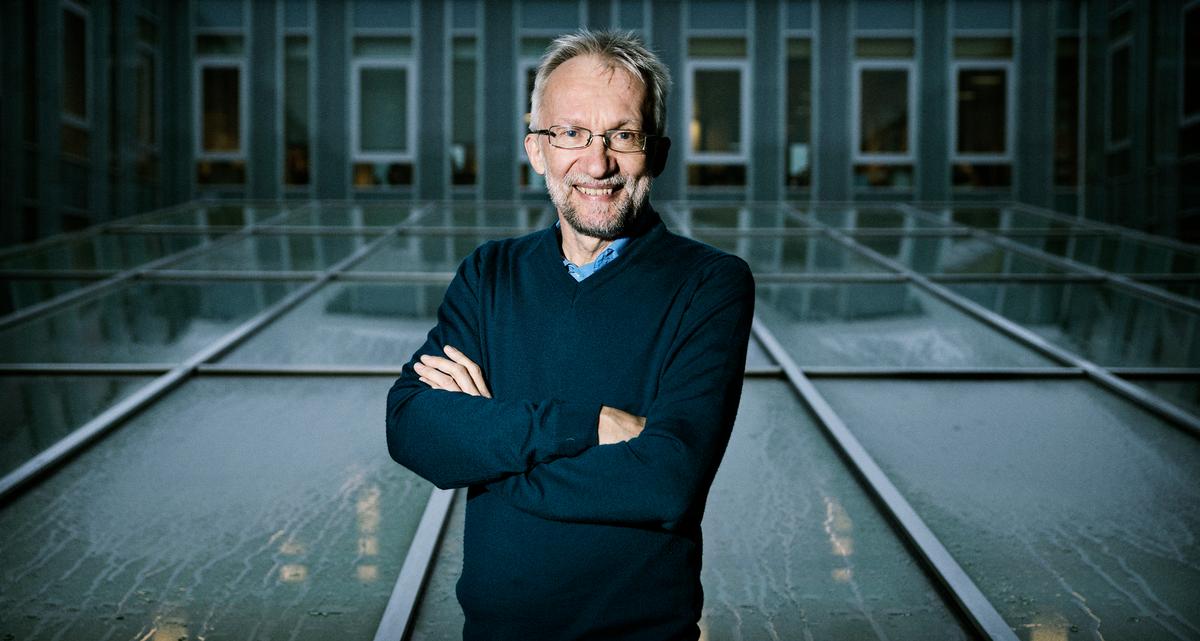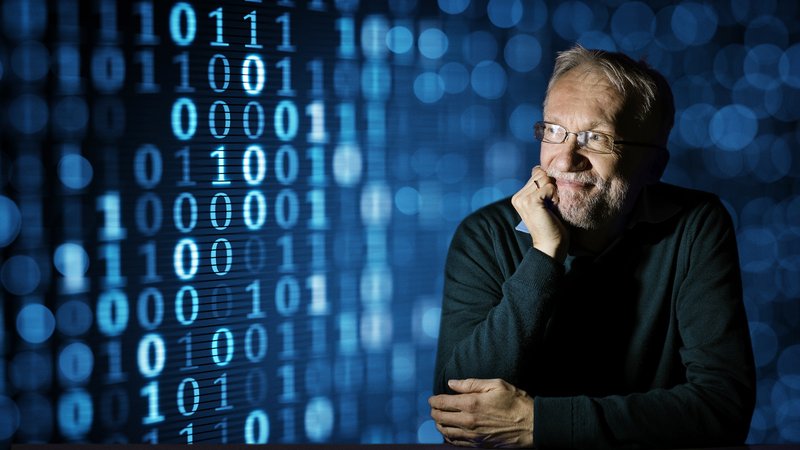Computer Science Professor receives Villum Kann Rasmussen's Annual Award
Professor Ivan Bjerre Damgård is this year’s recipient of the Villum Kann Rasmussen Annual Award in Science and Technology (5 million DKK). He receives the award in recognition of his outstanding research in the field of cryptography and data security.

Professor Damgård, of the Department of Computer Science at Aarhus University, has established himself as one of the world’s leading and most influential researchers in his field.
With a clear vision for the future of cryptography, Professor Damgård has also established a highly prominent and successful research group at Aarhus University that is considered to be one of the strongest cryptography groups in Europe.
Among his accomplishments, Professor Damgård broke new ground by developing the complex theories that serve as the foundation for the processes that allow us to safely and securely process the large amounts of data that our modern digital society is built on.
The seed for his research was planted more than 30 years ago with the successful completion of a research project. While the results of his research were of interest on a theoretical level, at the time they had no applications. The results of his work showed how individual computers could be linked in what is known as a multiparty computation system. Any data transferred to the closed system can be securely stored and processed.
- Multiparty computation makes it possible for a network of computers to work together as a single computer, Professor Damgård says.
- Together, the computers are more secure than each one is on its own. Even if one or more of the computers on the network is hacked, the network will continue to process data properly, and any data you wanted to keep secure will stay that way.
As it turned out, it would take more than 20 years until it became possible to transform theory into practical application.
- We began working out possibilities in the 1980s and by the end of the decade we’d devised this theory for getting a network of separate systems to work together as one. At that time, we agreed that the theory was novel and interesting – and we could easily see the enormous application potential – but the technology back then didn’t allow us to put the idea into practice, and we didn’t really believe it would ever be more than just theory, Professor Damgård says.
In today’s interconnected world, the need for systems of the sort the theory describes – systems that can safely process huge amounts of secure data – is enormous. Applications range from auctions – where bidders want to keep their identity unknown to other potential buyers – to the electrical grid – where producers want to keep their information secret from their competitors, while at the same time allowing it to be processed with other producers’ data in order to be able to come up with accurate industry-wide statistics that can be used for benchmarking purposes.
Cryptography and data protection were two fields that really began to take off while Professor Damgård was doing his PhD. Today it is driven forward by an interest in solving apparently unsolvable problems.
- I was deeply fascinated by the combination of mathematics and the practical applications it has. But what appealed to me in particular were all those problems that, at first glance, seem unsolvable, but, which, once you look more closely, turn out to have solutions. One of the things we are working on now is how a network that can process data without giving it access to the data is processing. It sounds like a paradox, but it’s actually possible, Professor Damgård says.
Read new portrait of Ivan Bjerre Damgaard here (in Danish)

With a clear vision for the future of cryptography, Professor Damgård has also established a highly prominent and successful research group at Aarhus University that is considered to be one of the strongest cryptography groups in Europe. Photo: Simon Knudsen
Ivan Bjerre Damgård
· Age 61
· Professor, Department of Computer Science, Aarhus University
· PhD, Aarhus University, 1988
· Guest researcher, Centrum Wiskunde & Informatica (CWI), Amsterdam
· Fellow, International Association for Cryptologic Research (IARC), 2010
· Recipient, ERC Advanced Grant, 2014
· Co-founder, Cryptomathic, Partisia and Sepior
· Member, ‘Danmarks Rigsspillemænd’, national fiddlers, 2014
· Recipient, Danish Music Award, composer of the year, folk music, 2007
· Father of two
· Resides in Aarhus
Multiparty Computing
Multiparty computing (MPC) is a technology for encrypting sensitive data that uses a system of computers linked into a highly secure shared network to store and process data. The network allows individual users to control how much information about their data and themselves is revealed to other users, limiting access to specific information and results. The network also allows users to share processed data, but not the data that was used to arrive at the result. MPC has applications for organisations such as auction houses, which have an interest in keeping individual bids and bidders secret.
